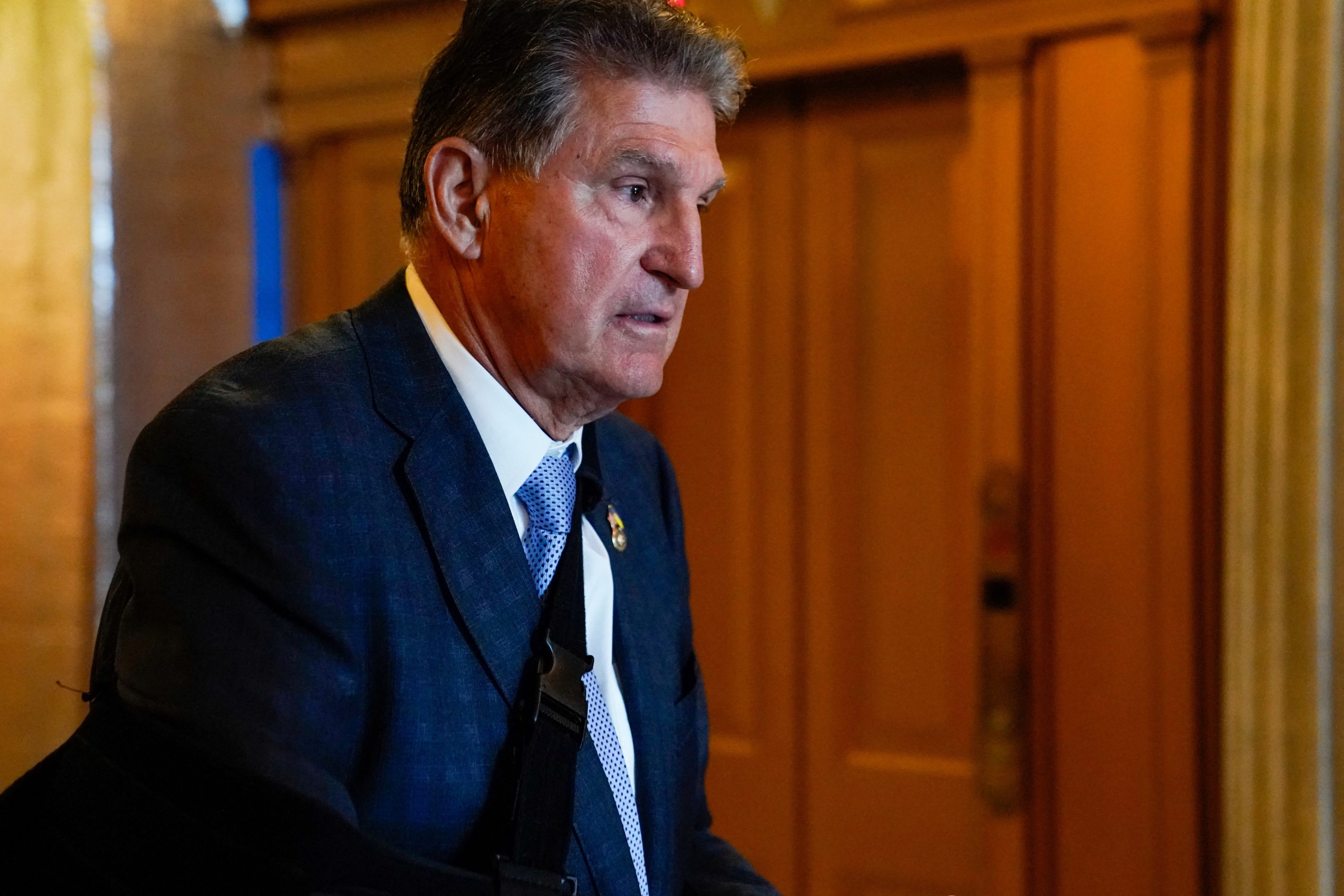
Willie R. Tubbs, FISM News
[elfsight_social_share_buttons id=”1″]
West Virginia Sen. Joe Manchin has the support of the White House but is losing allies among Democrats in Washington as he seeks to cash in on a promise made to him in the run-up to the passage of the Inflation Reduction Act.
As reported in more detail on The Hill, the Biden administration and Democratic leadership assured Manchin that, in exchange for his crucial support on the massive climate, health, and tax bill, leaders would couple a Manchin proposal on energy permits with an upcoming stopgap funding bill.
Manchin’s proposal would lead to a “balanced” list of energy projects, one in which fossil and renewable projects would be equally prioritized, but would also require the completion of a major natural gas pipeline that will run between West Virginia and Virginia.
Friday, a group of 72 Democrats in the House wrote a letter to Speaker Nancy Pelosi of California and House Majority Leader Steny Hoyer of Maryland asking that the measure be decoupled from the stopgap bill, which must be passed by Oct. 1 to avoid a government shutdown.
“The inclusion of these provisions in a continuing resolution, or any other must-pass legislation, would silence the voices of frontline and environmental justice communities by insulating them from scrutiny,” the letter reads.
The signatories, among them all members of the Squad, likely face a no-win situation. No matter how the situation proceeds, the end result would almost certainly be unpleasant for all Democrats, not just the 72 whose names adorn the letter.
In all likelihood, the Manchin proposal will remain coupled with the stopgap bill in the Senate. To remove it would be for both President Joe Biden and Senate Majority Leader Chuck Schumer (D-N.Y.) to renege on their word to a senator whose vote is critical in the passage of any legislation and who has shown a willingness to withhold his vote for months in order to get concessions.
Schumer has already said the language will be present in the stopgap bill, which has not yet been released.
That leaves Pelosi with the task of deciding how to proceed in the House. The speaker will be under immense pressure from the White House to proceed with the bill as it is currently constructed, if for no other reason than to appease Manchin.
Assuming all Republicans vote with them, the signatories could swing the vote against the coupled form of the bill. But to do that would be to accept, or at least be assigned, blame for the government shutdown that will follow.
However, there’s no guarantee that Republicans will ally themselves with the group of 72. Manchin’s pro-traditional energy plan is, if anything, an enticement to Republicans to support the stopgap measure.
While there are still several weeks and many opportunities for negotiations and changes, there is a distinct possibility that Biden’s desire to repay Manchin for support on the Inflation Reduction Act will create a scenario in which Republicans join forces with legacy and non-progressive Democrats to pass a pro-fossil fuels measure.
As previously reported on FISM, Republicans are intensely antagonistic to Biden’s stopgap proposal – which includes $47.1 billion in earmarks for Ukraine, COVID-19 and monkeypox response, and natural disaster recovery spending.
This is unlikely to solve the signatories’ issue.
Republicans and Democrats in the Senate are expected to negotiate extensively on the stopgap bill. Manchin is among the key figures in these negotiations as he has a talent for enticing Republican support.
In a pinch, Democratic leaders in the Senate could make enough concessions that Republicans in both chambers choose to support the bill, which would then make the 72 House Democrats mathematically inconsequential.
Republicans would then be able to boast a win over Biden in the run-up to midterms, which would be an overall harm to Democrats and Biden.
Even if Republicans choose to maintain a no vote across the board, the unhappy Democrats in the House will only face more sorrow as getting the spending measure passed in the Senate will require the support of Manchin.
If a stopgap measure arrives without Manchin’s proposal, the 50-50 Senate will become 51-49 in favor of the right.
The best-case scenario, and no doubt the hope of the letter writers, is that Pelosi decouples the measures. In that case, progressives could join forces with legacy Democrats to pass the spending bill and vote no on the pipeline measure, which might still pass with Republican support.
This would allow progressives to preserve the green street cred and Manchin to still enjoy the fruits of his hard-driven deal, but would again be predicated on an assumption that Republicans will vote in favor of a fossil fuel measure.
In the wacky world of 2022 American politics, progressives and legacy Democrats might each be vying for the affections of Republicans at the same time.
This gamble, were it to succeed in the short term, could ultimately derail the Democrats. Republicans could vote no on the fossil fuel measure and force the Democrats to send only the stopgap bill to the Senate, where it would be doomed and the government would grind to a halt a month out from midterms.
Were that to happen, progressives, the unquestioned leaders of the government and bureaucratic fanclub, would be left to explain how they, not Republicans, were the catalyst for a shutdown.
Which brings Democrats back to square one. The easiest way forward is that Democrat leaders negotiate with Republicans in the Senate and force the 72 signatories’ hand.
The result will be a cheaper, though by no means cheap, government funding bill, some form of fossil fuel development in the United States, and a progressive Democratic group left to either fall in behind Biden and likely lose the House, or stand against Biden and still likely lose the House.
